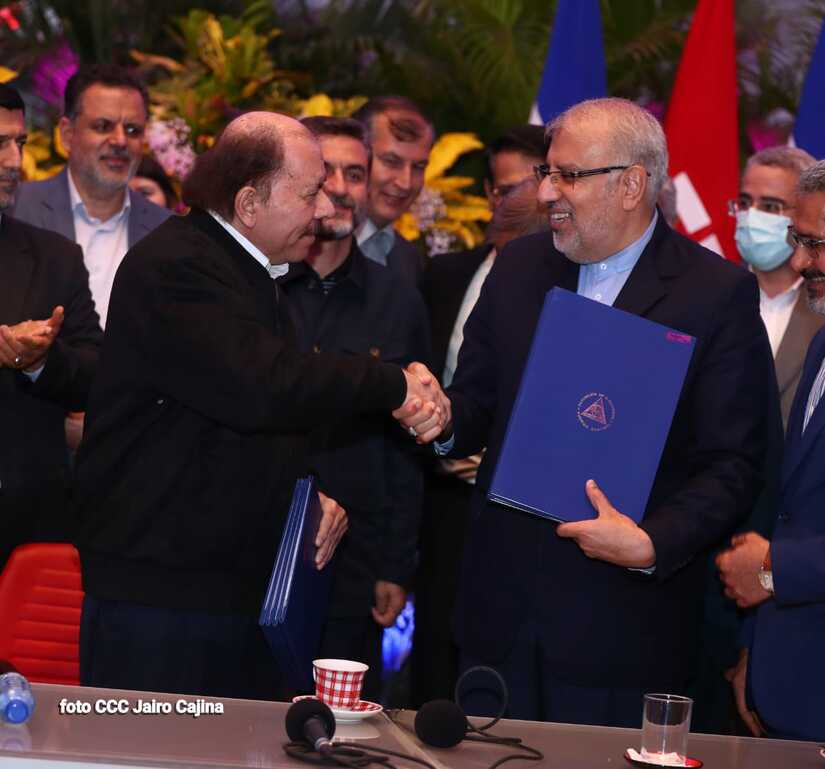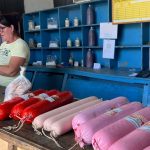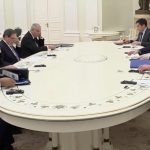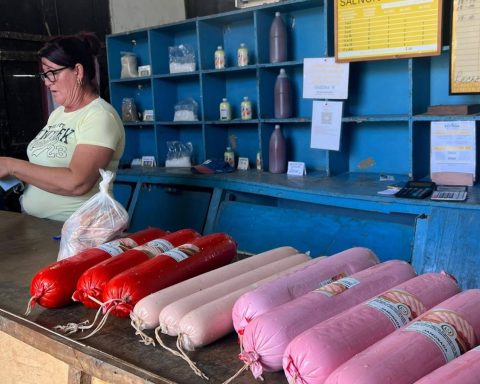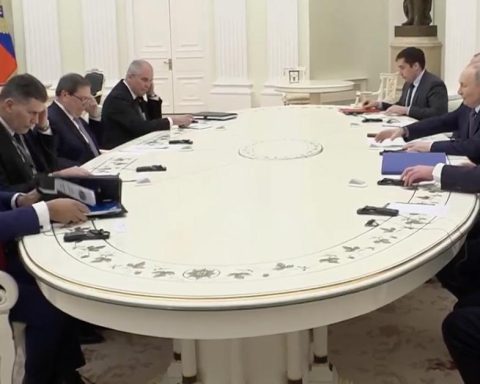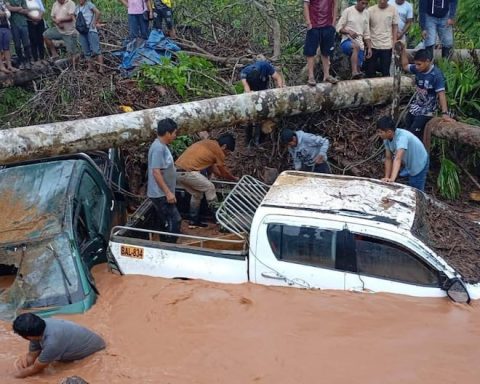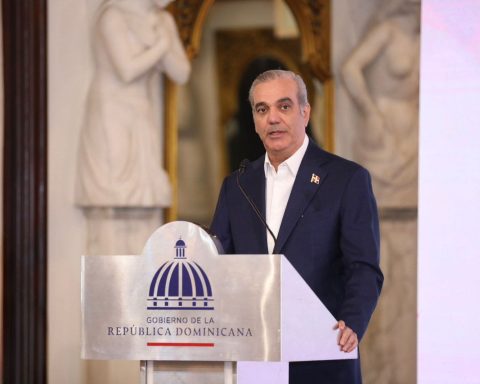Three days after the first inauguration of Daniel Ortega on his return to power in 2007, he received a visit from then-president of Iran Mahmoud Ahmadinejad in Nicaragua. Ortega gave him a tour of Managua in his Mercedes Benz and during an official act on the famous flowered platforms of Rosario Murillo, he decorated him with the Augusto C. Sandino order.
Ahmadinejad thanked the Sandinista commander for his attention. “Let the whole world know that both peoples will be together. This is an unforgettable day in my life”, thanked the Iranian president, and described Ortega as “a symbol of justice” and called him “his brother and friend”, according to media reports.
During this visit, the signing of various international cooperation agreements between Iran and Nicaragua was announced. These agreements were made official during a meeting between Ortega and the then Iranian Minister of Energy, Hamid Chitchian, in August 2007.
Among the varied list of agreed projects, the announcement of a supposed joint investment between Iran and Venezuela for the construction of a deep-water port in the Caribbean of Nicaragua stood out. It was the first “pharaonic” project promised by Ortega when he came to power.
Iranian projects in Nicaragua that remained in promises
In the 1980s, Iran and Nicaragua were projected as “sister revolutions”, since both occurred in 1979. However, the anti-imperialist rhetoric never translated into palpable economic cooperation and the unfulfilled promises of the Ayatollah Khomeini regime caused frustration among the commanders. Sandinistas.
“The Iranians did not give salt for a jocote, only loans to buy oil, and then they were relentless collectors,” recalled a former minister of the revolutionary government of the 1980s.
However, with Ortega’s return to power in 2007, the promises were revived.
Fifteen years later, the deepwater port is on the long list of large projects predicted by Ortega that did not go beyond the planning table. Of the other projects agreed upon in the 2007 signing, the only one that materialized was the construction of a polyclinic center, located in Villa Libertad, Managua, which functioned as one of the first vaccination centers against covid 19.
However, in early May 2022, Ortega, already enthroned as a dictator, appeared alongside Iran’s Oil Minister, Javab Owji Hom, to announce the signing of new cooperation agreements.
On this occasion, the list was much smaller than that of 2007, but the pharaonic promise of the day could not be missing: to resume the construction of the El Supremo Sueño de Bolívar refinery, the flagship work promised by the late Venezuelan leader Hugo Chávez Frías.
“The construction of this refinery has been a very intelligent and economically profitable action and measure. With the capacity that we have in the state oil company of Iran and with its experts and its specialists, we will do our best to be able to participate in the complementation of that refinery and in future refineries in the country. We hope that a mixed investment from Iran, Nicaragua and Venezuela can be made to complete that refinery”, said Owji Hom during his intervention.
Ortega, for his part, thanked the signing of these agreements and said that “we are talking about specific issues that are of interest to the people of Nicaragua. And we are counting on the accompaniment and solidarity of the people of Iran.”
In addition to resuming the construction of the refinery, during the signing of the agreements, an agreement was established for the supply of fuels to Nicaragua that would be paid for through a compensation or barter mechanism with products from the country.
“Iranians don’t eat gallopinto”
The economist and former deputy Enrique Sáenz is very skeptical about the viability of these “Nicaraguan food for Iranian fuel” agreements due to the enormous distances that separate Nicaragua from Iran and the absence of a properly established trade route.
According to data from the Export Processing Center (Cetrex), at least until April 2022, no purchase or shipment of Nicaraguan products to Iran was recorded.
“Nicaragua’s exports are not competitive in the Iranian market given the distances and the absence of trade routes. Also, metaphorically speaking, Iranians don’t eat gallopinto. That is to say, the products that are generated in Nicaragua are not in accordance with the eating habits of the Iranians,” said Sáenz.
“The approach in the regime’s propaganda is that it will be through a barter. Pay with products. But nothing or very little of what Nicaragua produces is competitive in the Iranian market. For example, will Nica cheese be competitive? When in Iran what they eat is goat cheese. With coffee, Iran has closer supplier markets and more competitive prices than Nicaragua. Sugar, there are also closer suppliers. So this barter thing sounds illusory,” he added.
Tiziano Breda, an analyst for Central America at the renowned International Crisis Group firm, said that behind the signing of agreements as pompous as the Iran-Nicaragua one there are more geopolitical than economic interests. More so in a context of isolation and lack of international legitimacy such as that surrounding the regime of Daniel Ortega and Rosario Murillo.
“We must start from the premise that the announcements made with Iran, Russia and other authoritarian regimes or governments or with the few political partners aligned with Daniel Ortega serve the objective of showing mutual recognition at the political level. Achieve political gains rather than economic ones. Normally these translate into smoke screens, ”he stressed.
Ortega Urged for International Recognition
Breda insisted that Ortega’s primary objective in the midst of a situation of international isolation is to show that there is support, recognition as a government and willingness to cooperate from important actors on the international scene.
“The problem is that these projects do not materialize into something specific due to the seriousness of the economic situation that the world is experiencing and the lack of sources of financing to carry them out, as has already happened with projects such as the great interoceanic canal, which was going to have investment from China,” he added.
Sáenz believed that the true intention of these signing of cooperation agreements is to send a message to the battered bases of Ortega and even to the sector of businessmen who are still betting on the regime to continue doing business.
“Hugo Chávez twice laid the first stone to build the refinery and the refinery remained a dream. The humorous and surreal question is whether Iran is going to come and lay the third foundation stone. Ortega has been in power for 15 years with good political relations with Iran. Why are good commercial and economic relations going to be developed until now? With exports to Iran, which have not materialized in previous years. This sum of facts leads me to think that this is more leaf than nacatamal”, he stressed.
Intentions to evade US sanctions
During the agreement signing event in May, Minister Owji Hom stressed that the fuel supply mechanism agreed with Nicaragua sought to evade the sanctions imposed by the United States on Iran, as well as the oil operations controlled by the Ortega Murillo family.
Ortega stressed for his part that bartering is “a modality that is still present” mainly to avoid “blockades, sanctions that are nothing more than aggressions by the empire and NATO.”
“It is an alternative that the peoples have. They block the financial system, we cannot transfer the payment of a product that we are interested in bringing from Iran, but we can pay it with products that interest Iran and that we produce here in Nicaragua,” added the dictator.
Breda indicated that one of the main keys to Iran’s relationship with countries such as Russia, Venezuela and Nicaragua is to seek mechanisms to circumvent US sanctions, since their transactions are affected internationally by banks and financial institutions that comply with with these restrictive measures.
“The volume of any eventual cooperation between Iran and Nicaragua on oil issues is too limited to generate any kind of reaction in Washington, but eventually any attempt to circumvent sanctions imposed by the United States on both Iran and Nicaragua may not be well received.” , he highlighted. Nor does Sáenz believe that the signing of these agreements will worry Washington, unless they have a hidden component that goes beyond the economic.
“I do not think that this type of operation causes concern for the United States. Yes it can cause them if at the same time there are hidden agreements that have to do with passports or police relations. That they have a more strategic connotation of a military or intelligence nature. The United States knows that trade agreements are unfeasible and of no consequence”, he concluded.
